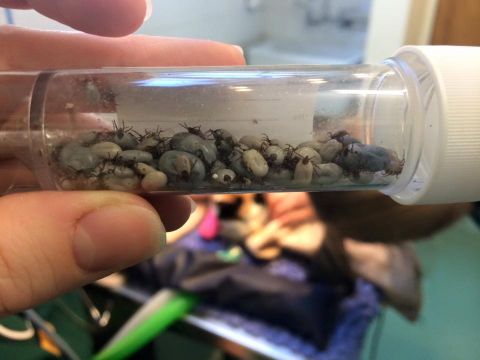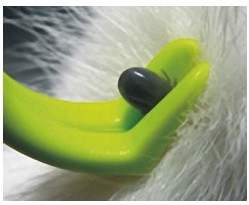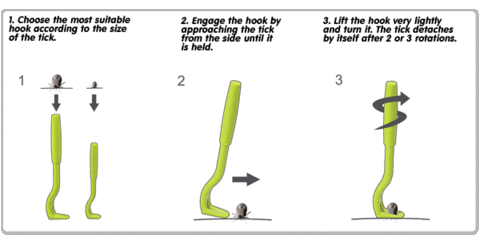Ticks - trouble, or not?

A dog in Essex has recently died and three others are seriously unwell following an outbreak of babesiosis.
This disease is caused by the Babesia canis parasite and is borne by ticks.
Many pet owners never check for ticks as they think ticks will only affect their dog if they travel abroad.
44% of dog owners in the UK have never used any tick control treatments.
We would usually expect the UK tick season to begin in April and end in November. However, the recent trend of milder winters have meant that pet owners should be much more alert all year around.
With the relaxation of the pet passport rules within the EU, family pets are now no longer required to undergo tick treatment before returning to the UK. Ticks not usually seen in the UK are now being found. Some species of tick will live indoors and are able to breed year round. Some will cause disease in humans, as well as animals.
Several species, such as the brown dog tick, can carry serious, "exotic" diseases, such as babesia canis, a parasite which attacks red blood cells. If diagnosed, treatment options are available, but prevention will always be better than treatment.
Ticks can be picked up anywhere in the UK. Their presence can vary considerably in any locality, and can change with time. Hedgehogs, sheep, deer, foxes and other wildlife help spread ticks.
In some parts of the UK - for example the New Forest - tick borne disease is already a major problem in animals and humans.
However, we urge our clients to be vigilant and regularly check their dogs and cats.
The most important part of treatment is to remove any tick as soon as it is found.

It is best to carry an O'Tom Tick Twister in your pocket. These can be used on humans also! Please ask us for a Tick Twister next time you are at one of our surgeries.

Many of the regular flea control treatments do not control ticks. Please ask our team for information on tick control options as these can be quite complicated - some products cannot be used if the dog is in regular contact with a cat; others cannot be used if the dog swims.





